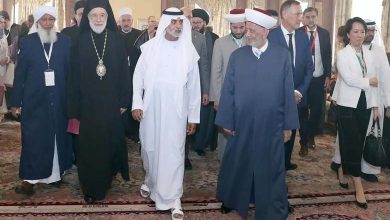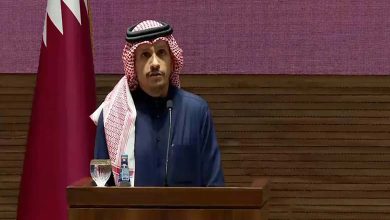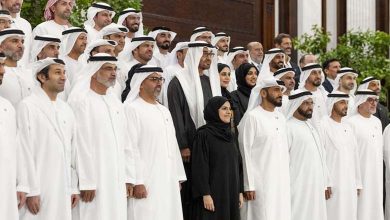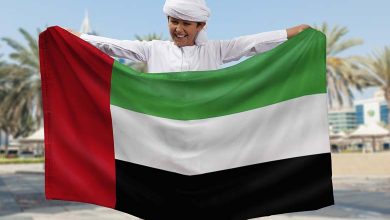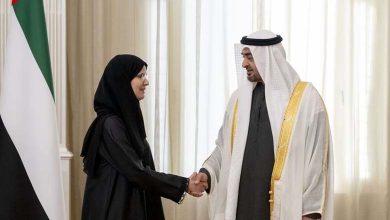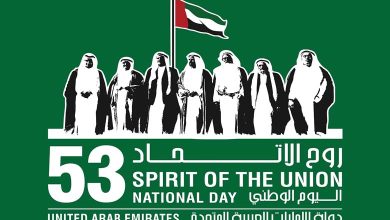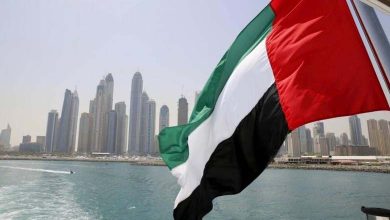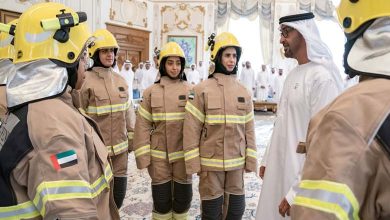Jeddah meeting ends without agreement on Syria’s return to the Arab League
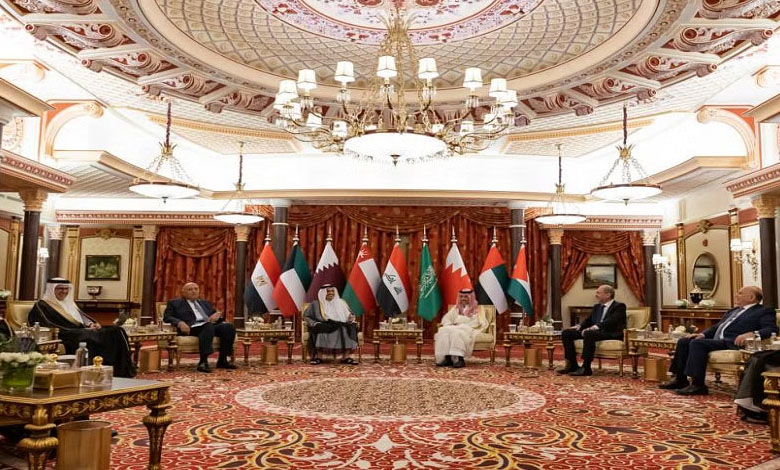
Arab ministers meeting in Jeddah, Saudi Arabia, failed to reach a decision Saturday on the return of the Syrian regime to the Arab League, but agreed on the importance of taking a leading role in efforts to end the crisis in Syria.
The Saudi Foreign Ministry said Saturday in a statement that the ministers stressed “the importance of having an Arab leadership role in efforts to end the crisis, develop the necessary mechanisms for this role, and intensify consultation among Arab countries to ensure the success of these efforts.”
The Saudi Foreign Ministry statement added that the meeting also included “consultations and an exchange of views on the efforts exerted to reach a political solution to the Syrian crisis that would put an end to all its repercussions and preserve Syria’s unity, security and stability, its Arab identity and return it to its Arab sphere in order to achieve the welfare of its brotherly people.”
“The ministers agreed on the importance of resolving the humanitarian crisis, providing a suitable environment for aid to reach all areas in Syria, creating the necessary conditions for the return of Syrian refugees and displaced persons to their areas, ending their suffering, enabling them to return safely to their homeland, and taking further measures that would contribute to stabilizing the situation in all Syrian territories,” the statement said.
Saudi Arabia hosted the meeting on Friday to discuss the return of Damascus to the Arab fold after more than a decade of its exile, amid regional diplomatic moves that have changed the political landscape in the region since Riyadh and Tehran agreed to resume ties last month.
“Several Arab countries, led by Saudi Arabia, closed their embassies and withdrew their ambassadors from Syria in protest at the Syrian regime’s repression in 2011 of a popular uprising that evolved into a conflict in which Saudi Arabia and other Arab countries supported Syrian opposition factions.”
The Arab League suspended Syria’s membership in November 2011.
“Over the past two years, however, there have been signs of rapprochement between Damascus and several capitals, including Abu Dhabi, which has restored diplomatic ties, and Riyadh, which has held talks with Damascus on resuming consular services between the two countries.”
The GCC meeting was held in Jeddah and included Egypt, Iraq and Jordan to discuss Syria’s return to the Arab League, nearly a month before an Arab summit in Saudi Arabia.
Saudi officials did not release any information regarding the meeting, except for the one-by-one arrival of foreign ministers and representatives of participating countries in Jeddah on the Red Sea. The state-run Al-Ekhbariya television broadcast video of the meeting.
The Jeddah meeting was held to discuss the return of the Syrian regime to the Arab League about a month before an Arab summit is scheduled to be held in Saudi Arabia.
Saudi Arabia on Wednesday received Syrian Foreign Minister Faisal Mekdad for the first time since the start of the conflict in his country. Meanwhile, an Iranian delegation was also in the kingdom to prepare for the reopening of Iran’s diplomatic missions.
In an earlier statement, the Saudi Foreign Ministry said that Saudi Foreign Minister Prince Faisal bin Farhan bin Abdullah and his Syrian counterpart discussed “the necessary steps to achieve a comprehensive political settlement to the Syrian crisis, which would end all its repercussions, achieve national reconciliation, contribute to the return of Syria to its Arab sphere and resume its natural role in the Arab world”.
“Saudi Arabia is leading this effort entirely, but under the umbrella of the Gulf Co-operation Council,” an Arab diplomat told AFP.
“The Saudis are at least trying to ensure that Qatar does not object to Syria’s return to the Arab League if the issue is put to a vote,” he said, adding that he did not expect a unified position on the issue.
Announcing Doha’s participation in the meeting, Qatari Foreign Ministry spokesman Majid al-Ansari said Tuesday that the change in Qatar’s position towards Syria “is linked mainly to the Arab consensus and is linked to a change on the ground that achieves the aspirations of the Syrian people”.
But Qatari Prime Minister Sheik Mohammed bin Abdulrahman Al Thani said in a television interview late Thursday that talk of Syria’s return to the Arab League was “speculation”, stressing that Doha still had reasons to suspend Damascus.
Residents of Idlib in northern Syria, which is outside the regime’s control, expressed disappointment with the Saudi effort and a sense of “betrayal.”
“We, the residents of northern Syria, felt betrayed when we heard about normalization with al-Assad,” said Rama Seifo, 32. “How did it happen that after 12 years of struggle and revolution, they come today and say to him: Here’s your seat at the Arab League? This is unacceptable.”
Nayef Shaaban, a 55-year-old Damascus-area displaced person who boasts that he “participated in the first revolution in Hamidiyeh in Damascus,” said, “This is a major disgrace for the brotherly Arab countries and a disappointment in the world and the region because of rapid normalization without achieving any political or social results, not even on the security level inside Syria, or on the level of regime change,” which was the demand of several countries at the start of the conflict.
“Gulf states, notably Saudi Arabia, the UAE and Qatar, have provided financial and military support to Syrian opposition factions before their support gradually declined in recent years.”
In February 2022, Doha hosted a seminar aimed at “boosting the performance of the Syrian opposition” in the face of the al-Assad regime’s regaining in recent years some of its diplomatic position and military control over much of the country.
Diplomatic efforts towards Syria are difficult to separate from the rapprochement between Tehran and Riyadh, which announced on March 10 that they would reach an agreement after a seven-year break following the attack on Saudi diplomatic missions in Iran over the execution of Shiite cleric Nimr al-Nimr in Saudi Arabia.
Before an Iranian delegation visited Saudi Arabia this week, a Saudi delegation visited Tehran on Saturday to discuss mechanisms for reopening the kingdom’s diplomatic missions in the Islamic Republic.
“Saudi Arabia and Iran are at odds on a number of regional issues, including the war in Yemen.”
“Saudi Arabia has led a military coalition supporting the Yemeni government since 2015, while Iran backs Houthi rebels who entered the capital Sana’a in 2014.” “The war has killed hundreds of thousands, directly and indirectly, and left most of the population dependent on aid for survival.”
Experts see the current cooling efforts on the Yemeni front as part of renewed Iranian-Saudi communication.
A Saudi delegation led by ambassador Mohammed al-Jaber held rare talks with the Houthis in Sanaa this week, seeking a truce in Yemen’s nine-year conflict.
The exchange of hundreds of prisoners between the two sides to the conflict, which includes Saudi prisoners, began on Friday, and the two sides released 318 prisoners. The exchange will last until Sunday to include about 900 prisoners.


